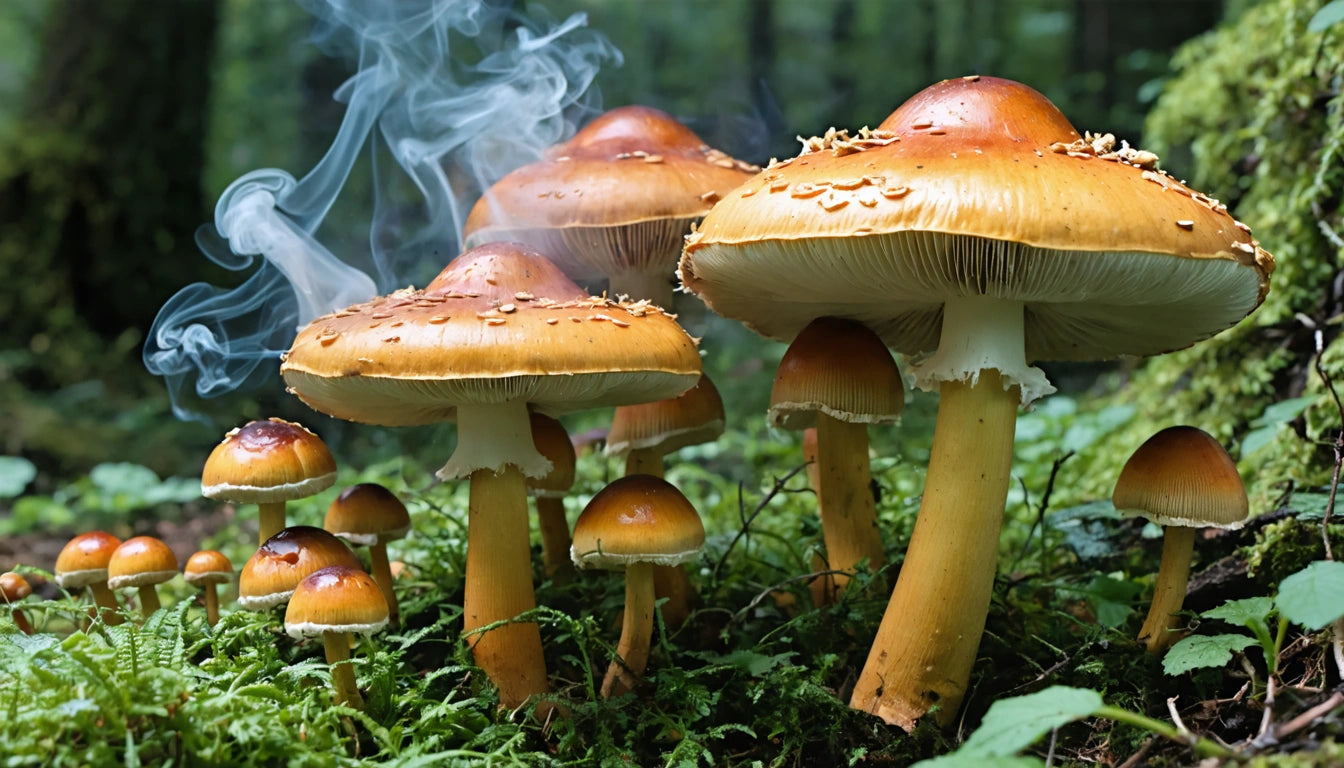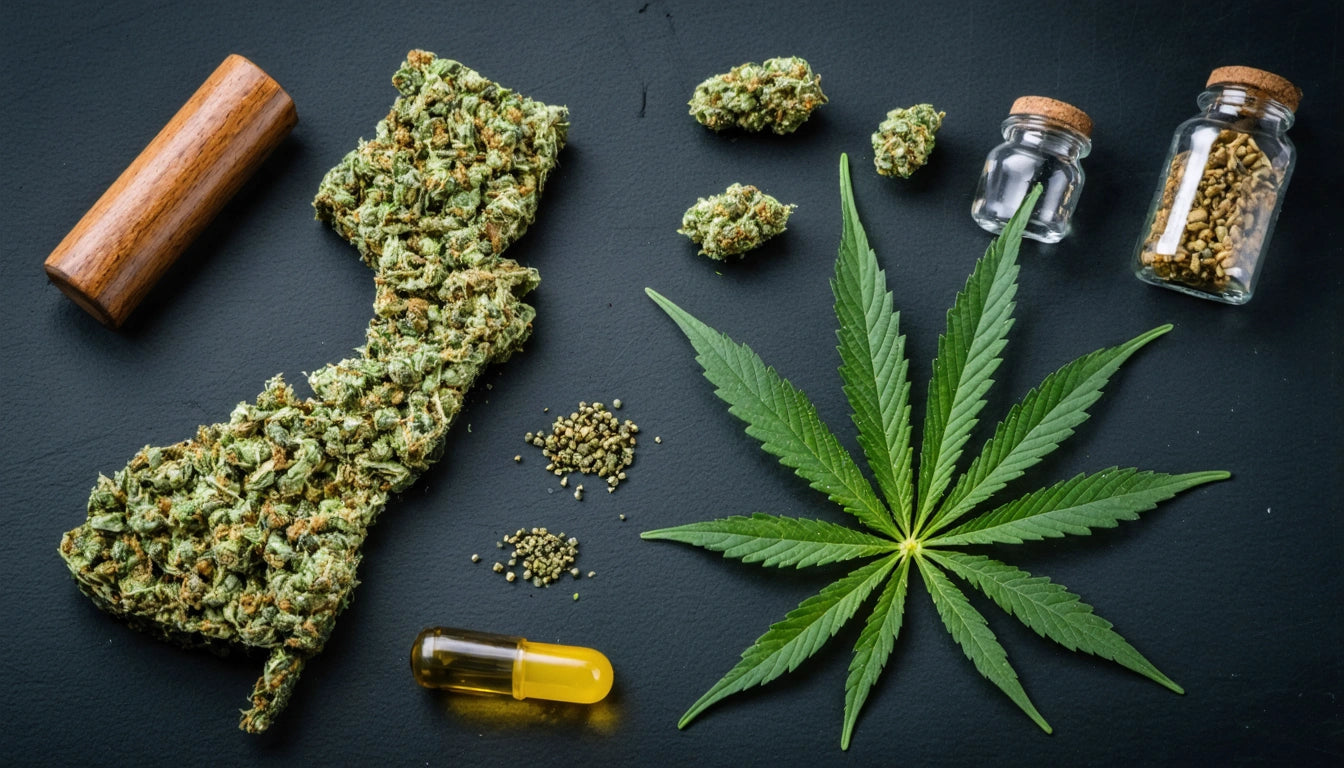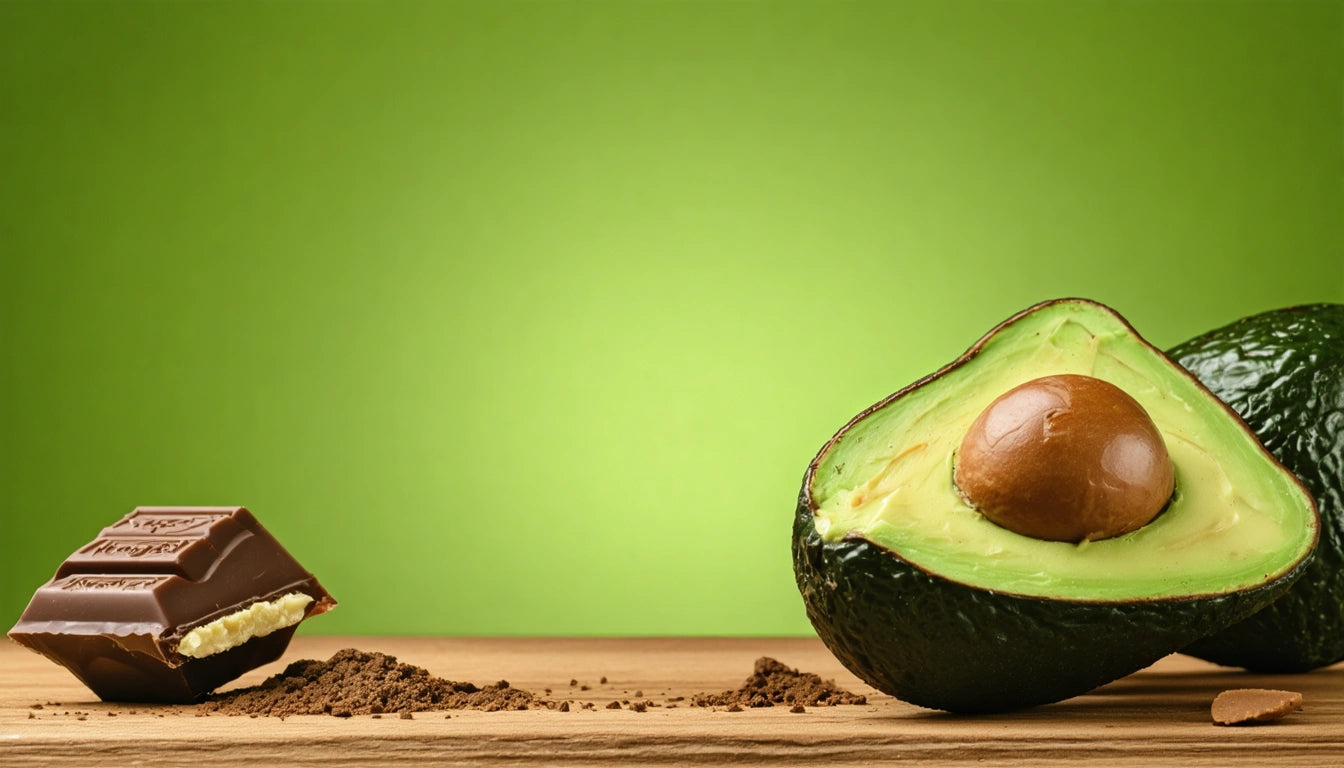Table of Contents
Exploring the Effects and Risks of Smoking Psilocybin Mushrooms
The question "can you smoke mushrooms" appears frequently in psychedelic communities, particularly among those familiar with smoking cannabis. While curiosity about alternative consumption methods is natural, understanding the science behind psilocybin and how it responds to heat is crucial for harm reduction and informed decision-making.
Common Questions About Smoking Mushrooms
Many users wonder if smoking psychedelic mushrooms produces similar effects to eating them. The short answer is that while you physically can smoke dried mushrooms, it's generally ineffective for experiencing psychedelic effects and potentially harmful to respiratory health. Unlike cannabis, which releases active compounds when combusted, psilocybin mushrooms work differently.
According to research on smoking psilocybin, the active compounds in magic mushrooms break down at high temperatures, rendering them largely inactive when smoked. This fundamental difference explains why smoking is not a traditional or effective method of consumption.
Chemical Composition and Heat Sensitivity
Psilocybin mushrooms contain several compounds, with psilocybin and psilocin being the primary psychoactive components. When ingested orally, psilocybin converts to psilocin in the body, which then produces psychedelic effects by binding to serotonin receptors in the brain.
Heat Degradation
When exposed to the high temperatures of combustion (typically 800-900 °F or higher when smoking):
- Psilocybin begins to degrade at around 180 °C (356 °F)
- The molecular structure breaks down, destroying psychoactive properties
- Any effects experienced are likely placebo or from inhaling fungal matter
This heat sensitivity is why even cooking mushrooms can reduce potency, and why smoking them essentially destroys the compounds responsible for psychedelic effects.
Comparing Consumption Methods
Traditional and effective methods of consuming psychedelic mushrooms include:
- Oral consumption (eating dried mushrooms)
- Brewing into tea
- Grinding into powder for capsules
- Lemon tek (soaking in lemon juice to convert psilocybin to psilocin before consumption)
Each of these methods preserves the integrity of the psychoactive compounds while facilitating their absorption into the bloodstream. For accurate dosing, many experienced users rely on precise digital scales to measure their mushroom portions, ensuring consistent and predictable experiences.
Combining Mushrooms with Cannabis
Some users ask "can you smoke mushrooms with weed?" While physically possible to mix dried mushroom material with cannabis, this combination doesn't effectively deliver psilocybin's effects for the reasons mentioned above. However, separately consuming mushrooms orally while smoking cannabis is a different matter.
Combining cannabis with mushrooms (consumed separately by their effective methods) can:
- Potentially intensify the psychedelic experience
- Help manage nausea sometimes associated with mushroom consumption
- Create synergistic effects between the two substances
This combination should be approached cautiously, especially by those new to either substance, as it can significantly amplify effects and potentially increase anxiety or confusion.
Health Risks and Safety Concerns
Beyond ineffectiveness, smoking mushrooms presents several health concerns:
Respiratory Risks
Inhaling any burned fungal matter can:
- Introduce fungal spores and particulates to lung tissue
- Cause irritation to the respiratory system
- Potentially lead to infections or allergic reactions
- Create unknown toxic byproducts from combustion
Misidentification Dangers
A critical risk factor is mushroom identification. While people rarely smoke mushrooms intentionally, the question "can dogs eat psychedelic mushrooms" highlights another safety concern: accidental consumption. Both humans and animals should avoid wild mushrooms unless properly identified by experts, as many toxic look-alikes exist.
According to safety guidelines for psychedelic mushrooms, proper identification is essential regardless of consumption method, as misidentified mushrooms can cause serious health complications or death.
Scientific Perspective and Research Gaps
The scientific community has extensively studied oral consumption of psilocybin mushrooms, with research on therapeutic applications for depression, anxiety, and addiction showing promising results. However, smoking as a delivery method remains largely unstudied precisely because it's known to be ineffective based on the chemical properties of psilocybin.
As interest in psychedelic research grows, understanding effective administration routes becomes increasingly important. Current evidence strongly suggests that smoking is not among them, and researchers continue to focus on optimizing oral delivery methods and exploring other potential routes like sublingual or nasal administration.
For those interested in the therapeutic potential of psilocybin, focusing on established consumption methods and staying informed about legal developments regarding psychedelic mushrooms is more productive than experimenting with ineffective and potentially harmful consumption methods like smoking.











Leave a comment
All comments are moderated before being published.
This site is protected by hCaptcha and the hCaptcha Privacy Policy and Terms of Service apply.